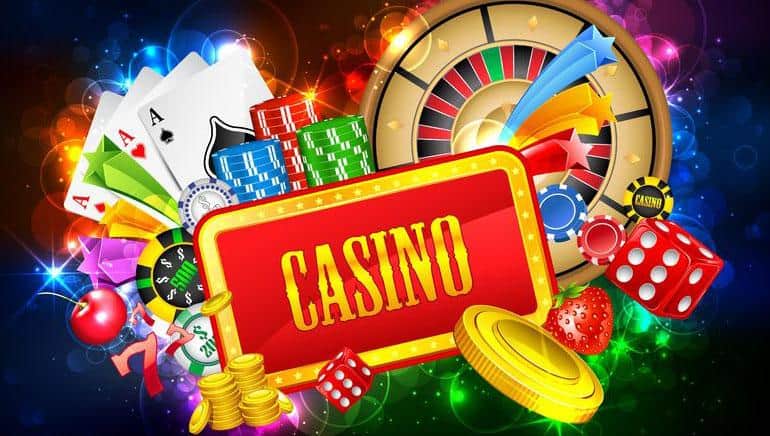Within the lively world of casinos, where the atmosphere humms with enthusiasm and the clattering of chips fills the space, the role of a dealer is both crucial and captivating. Daily, these skilled experts step into a world where fortune and tactics converge, leading players through the ups and downs of their chosen casino games. From table games like 21 and poker to the spinning wheels of roulette, dealers manage the action while ensuring that each game operates smoothly and fairly.
As the day breaks on another busy day, a casino dealer prepares to dive in this dynamic setting. Their responsibilities extend beyond merely distributing the cards or spinning a wheel; they are also entertainers, service providers, and guardians of the rules. Each workday brings new challenges and experiences, making every day distinct in the life of a dealer. This insider look will examine the daily routine of a casino dealer, showcasing the skills and experiences that make this profession both exciting and fulfilling.
The Role of a Casino Game Croupier
A casino table dealer is at the heart of the gaming experience, orchestrating the flow of the play while making sure that players are engaged and entertained. Their primary duty is to oversee the table, which involves distributing cards, spinning the wheel, or managing the chips, based on the type of game being played. Croupiers must possess a deep understanding of the regulations and regulations governing each type of game, while also upholding a friendly and approachable demeanor to enhance the gaming atmosphere.
In addition to overseeing the play, croupiers must also monitor on the players and the surroundings around the game. This includes watching for any indications of cheating, making sure that everyone is following the guidelines, and addressing any conflicts that may arise among players. Strong communication skills are essential, as croupiers often give explanations about the rules and mechanics and offer assistance to those who may be new to gambling games.
Furthermore, a croupier’s role extends beyond just the technical aspects of the game. They play a crucial part in creating an immersive experience for the players. shbet This requires establishing a connection with patrons, being sensitive to their needs, and often injecting an element of fun into the game. It’s this mix of talent, alertness, and people skills that makes the position of a casino game dealer both demanding and rewarding in the dynamic world of casino games.
Responsibilities and Challenges in Daily Operations
One of the primary responsibilities of a casino game dealer is to oversee the multiple games offered at their table, making sure a seamless and satisfying experience for players. Dealers must be proficient at distributing cards, handling chips, and maintaining the continuity of the game. This calls for a deep understanding of the rules of each game, from blackjack to roulette, and the ability to answer players’ questions while maintaining the game progressing. Attention to precision is paramount, as dealers must track bets, disburse winnings correctly, and monitor any cheating or discrepancies at the table.
In addition to managing the game itself, dealers face challenges such as managing difficult players. The casino environment can be high-pressure, particularly during high-stakes games, and a dealer must remain composed and professional at all times. They need strong interpersonal skills to handle interactions with players who may be upset about losses or dissatisfied with the game’s pace. Handling these situations delicately is crucial in creating a friendly atmosphere on the casino floor.
Another major responsibility is maintaining the integrity of the game. Dealers must be alert and observant, watching for any signs of collusion or cheating among players. This involves not only a solid knowledge of the games but also an awareness of human behavior. They must also follow the casino’s rules and procedures, taking part in regular training sessions to stay informed on rules and protocols. Balancing these responsibilities while providing excellent customer service is what makes the role both challenging and rewarding for a dealer in a casino.
Qualities and Skills for Achievement
A successful casino game dealer must have outstanding communication skills. This includes merely the ability to effectively explain game rules and procedures to participants but also the capacity to engage with them in a approachable and respectful manner. Building rapport with patrons can enhance the gaming experience and inspire repeat visits to the casino. Effective communication enables dealers to manage tables smoothly while ensuring that players feel entertained.
Additionally, solid mathematical skills are essential for a dealer. Quick math are often required to follow bets, payouts, and game outcomes in the moment. A dealer’s ability to perform these math operations accurately and swiftly promotes to the overall efficiency of the game. This skill helps in maintaining the flow of play and in minimizing disputes or misunderstandings with players, which is crucial in a dynamic casino environment.
Lastly, an ideal casino game dealer should demonstrate integrity and professionalism at all times. Trust is a crucial component of the gaming experience, and players must feel secure that the games are conducted equitably and clearly. A dealer’s commitment to upholding high ethical standards fosters a welcoming atmosphere at the table and enhances the casino’s reputation. Being consistent in behavior ensures that dealers leave a lasting impression on guests, which can lead to a dedicated customer base.
